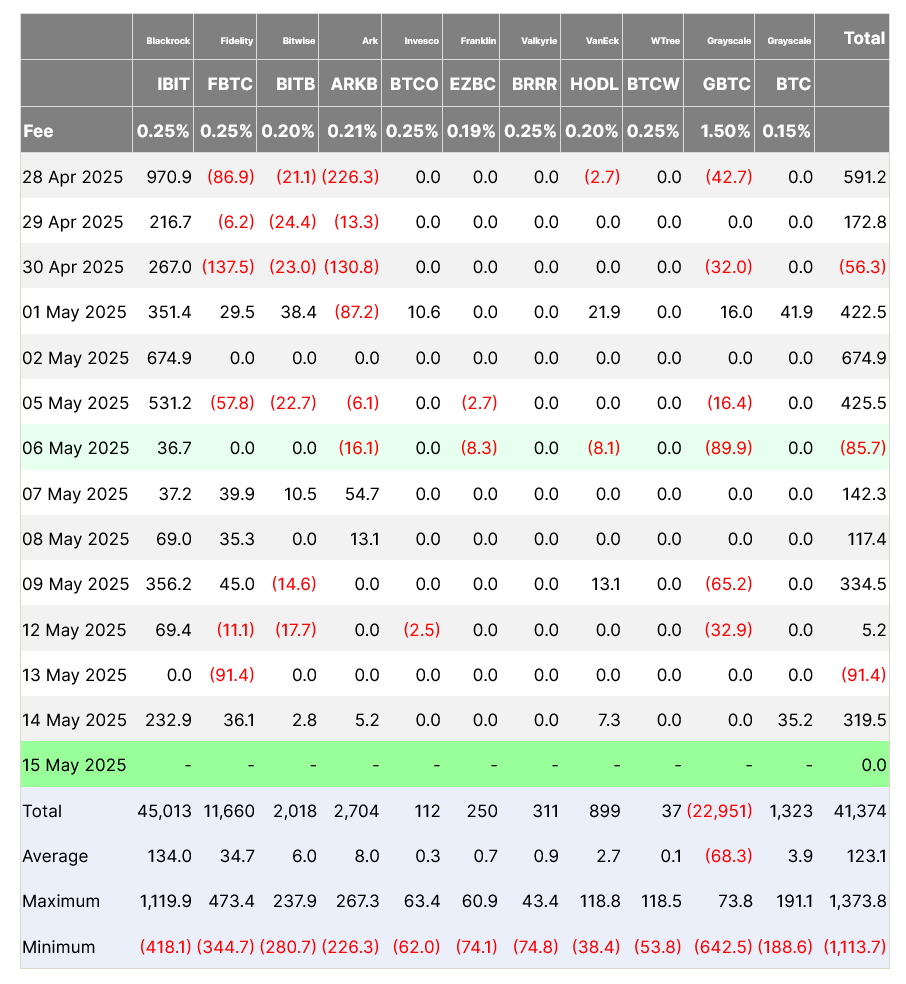
Wisconsin Board Sells Bitcoin ETFs Amidst Institutional Inflows
The State of Wisconsin Investment Board (SWIB), the entity managing the state’s retirement funds, made a significant move in the first quarter of 2025 by completely liquidating its holdings in BlackRock’s iShares Bitcoin Trust ETF (IBIT). This decision marks a stark reversal of the board’s earlier foray into Bitcoin exposure, having initially invested $164 million in various Bitcoin ETFs during the launch quarter of these products in Q1 2024.
SWIB’s 13F filing to the US Securities and Exchange Commission on May 15 revealed no remaining Bitcoin ETF positions, signifying a complete exit from this asset class. The board had previously held 6,060,351 IBIT shares, valued at approximately $355.6 million at current prices. This sell-off comes just a quarter after SWIB reported additional purchases of IBIT shares in Q4 2024, while simultaneously shifting its entire holdings in the Grayscale Bitcoin Trust (GBTC) to IBIT.

Institutional Interest in Bitcoin ETFs Continues to Grow
Despite SWIB’s divestment, the broader market witnessed a surge in institutional interest in Bitcoin ETFs, particularly BlackRock’s IBIT. Data from Farside Investors indicates that IBIT’s net inflows surpassed $45 billion by May 14, with a single-day inflow of $232.9 million recorded on May 13. This impressive 20-day streak of net inflows came to an end on May 14 with a “0” inflow.

It’s worth noting that IBIT has not experienced any outflows since April 9, marking over five weeks of consistent inflows. This underscores the growing appetite for Bitcoin exposure among institutional investors, despite the recent market volatility.
Contrasting Strategies: SWIB and Mubadala
While SWIB opted to exit Bitcoin ETFs, other institutional investors are doubling down on their positions. For instance, Abu Dhabi’s sovereign wealth fund, Mubadala, significantly increased its IBIT holdings in Q1 2025, acquiring an additional 491,439 shares. As of March 31, Mubadala held a total of 8,726,972 IBIT shares, worth approximately $512 million.
The contrasting strategies employed by SWIB and Mubadala highlight the evolving landscape of institutional investment in the crypto space. While some institutions may be hesitant to maintain their Bitcoin exposure, others are embracing the asset class, viewing it as a strategic opportunity.
The Future of Bitcoin ETFs
The recent surge in Bitcoin ETF inflows, coupled with the contrasting strategies of SWIB and Mubadala, raises questions about the future of these products. Some analysts believe that Bitcoin ETFs are becoming increasingly mainstream, attracting a wider range of institutional investors. This trend could lead to increased market stability and further adoption of cryptocurrencies by traditional financial institutions.
However, others remain cautious, pointing to the inherent volatility of the crypto market and the regulatory uncertainty surrounding Bitcoin ETFs. Only time will tell how these developments will shape the future of Bitcoin ETFs and the broader crypto landscape.


